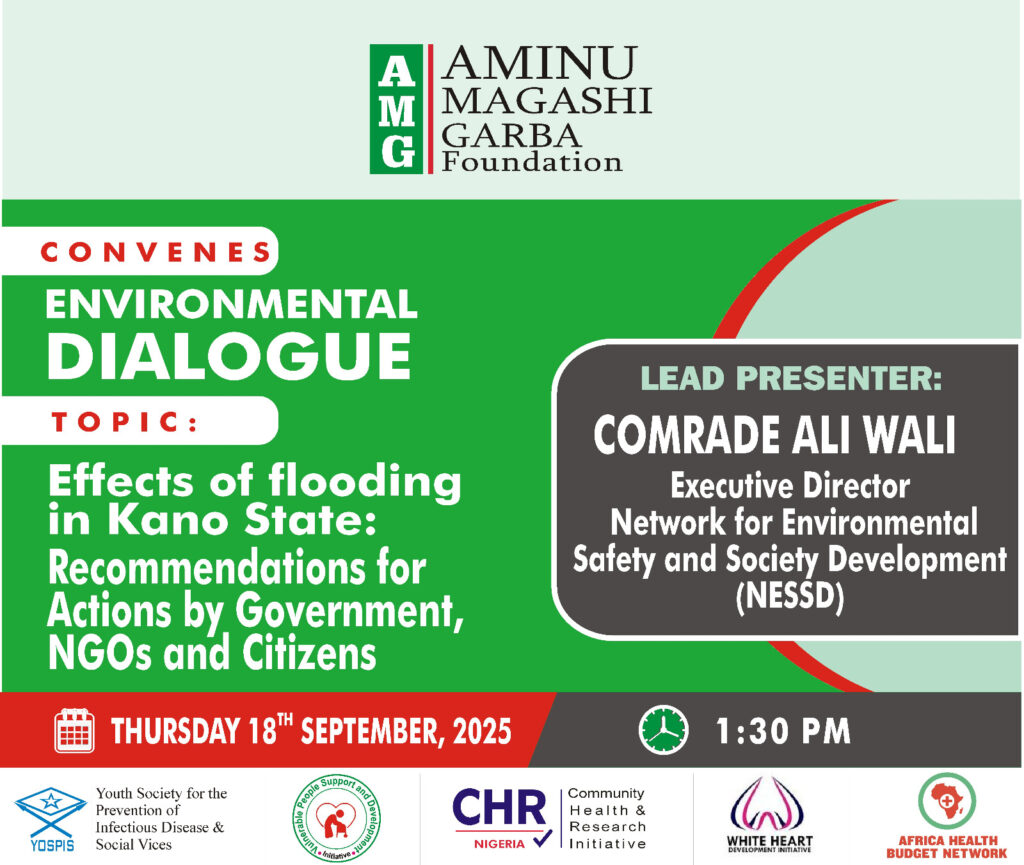The Aminu Magashi Garba (AMG) Foundation has convened an environmental dialogue to address the effects of flooding in Kano State.
The event, held in Kano, brought together a wide range of stakeholders to develop actionable recommendations for the government, NGOs, and citizens.
KNSG AMG Unveil Framework for Humanitarian Interventions Trust Fund
The dialogue, titled “Effects of Flooding in Kano State: Recommendations for Action by Government, NGOs, and Citizens,” drew a large turnout of participants from civil society organisations, government agencies, the media, and professionals in the health and environmental sectors.
Delivering the lead paper presentation, Comrade Ali Wali, Executive Director of the Network for Environmental Safety and Society Development (NESSD), outlined a series of recommendations aimed at tackling flooding in both the short and long term.
WHD: AMG Foundation Commits ₦25M to Kano Humanitarian Trust Fund
He advised the state government to ensure Timely and proper Desilting and clearing of drainage systems, Implementation of early warning systems and emergency preparedness plans and Provision of relief materials to flood victims.
“Development of comprehensive flood risk management strategies and upgrading of infrastructure to withstand flood impacts.
On recommendations to NGOs, Comrade Ali urged them to provide emergency response support, including food, shelter, clothing, and essential supplies and deliver medical care and psychosocial support to flood victims.
Others are to build the capacity of local communities to respond to disasters as well as to engage communities to raise awareness on flood risks, preparedness, and sustainable environmental practices.
“Advocate for policies and practices that prioritise flood risk management and mitigation”
The executive director advised citizens to develop family emergency plans, including evacuation routes and safe meeting points, in addition to supporting vulnerable neighbours, especially the elderly and persons with disabilities.
He noted that raising awareness on flood risks and mitigation strategies among family, friends, and community, participating actively in community initiatives such as clean-up exercises and flood mitigation efforts, will go a long way in mitigating disasters.
Discussants at the dialogue the executive director YOSPIS Zainab Ahmed Nasir, Malam Sagir Salihu Chedi
and Malam Garba Haruna Idris.
Participants shared their experiences on flooding and offered recommendations and suggestions on how to ensure a disaster-free society.
The dialogue emphasised collective responsibility, with stakeholders agreeing that effective flood management requires strong collaboration between government, NGOs, and citizens.





